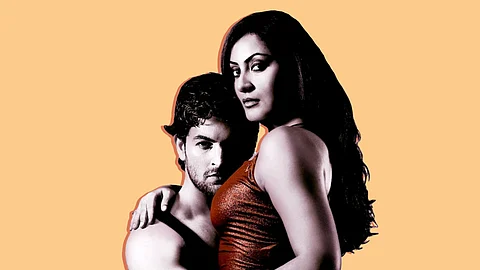
- Reviews
- Power List 2024
- Cannes 2024
- In-Depth Stories
- Web Stories
- News
- FC Lists
- Interviews
- Features
- FC SpecialsFC Specials

Pulling off a twist, be it in a book or a film, is no simple task. Even with all the meticulous convolutions of the narrative, allowing for no lapses of logic or plausibility, a twist can be easily guessed and thus lose its intended effect of surprise, if the reader or the viewer is sly enough to sift through all the red herrings and disinter the truth by a process of elimination. Arthur Conan Doyle’s Sherlock Holmes stories are still the gold standard in detective fiction but Agatha Christie’s whodunnits can be easy to predict if the reader is able to keep a store of the stray details of incidents or clues that are scattered somewhere in the conversations between Hercule Poirot and the suspects. But as for our own films, frequently, the trickery of dramatic music and slow motion almost obliterate whatever suspense can be found before a twist is unveiled.
It is rare to find a film in our cinema that throws a truly dramatic yet ingeniously conceived twist at us without warning and there has been only one director who has been able to create such fantastic and fascinating twists in his tales of crime and consequences. But then, for Sriram Raghavan, like Bishop Blougram in Robert Browning’s poem, the interest has always been on the “dangerous edge of things” – the honest thief, the tender murderer, two unmistakable specimens of the believably tormented criminals that one finds in his films – the femme fatale weeping in the wake of her husband’s death while a piano tinkles in her room, the crook gone clean who cracks and collapses as his past returns with gruesome vengeance.
Johnny Gaddaar, while not as haunting as Badlapur (2015) or hilariously macabre as Andhadhun (2018), is nevertheless a great film and a pure thriller in the finest sense. It is also an affectionate ode to the thrillers of yore, to the pulp paperbacks of James Hadley Chase and to the potboiler films of Vijay Anand, both of which revelled in their lurid and colourful thrills and spills. But in all honesty, calling it merely a tribute to a genre is a disservice to the finely calibrated suspense that enlivens the familiar story – of a young thief betraying his own gang – and a sense of moral ambivalence that enriches it with surprising resonance.
There are twists and turns in the film as Vikram (Neil Nitin Mukesh) proceeds on his corpse-littered trail of murder and mendacity, forever on the brink of discovery himself but still playing off his gambit in almost cold-blooded fashion. Intriguingly, though, Raghavan almost makes Vikram appear to our eyes as a stony-hearted scoundrel – we find little empathy for his deeds and we are more pained and heartbroken as the wonderfully whimsical and even wise characters around him – be it his dignified mentor Sheshadri, played memorably by Dharmendra, or the helplessly uxorious Prakash, played by Vinay Pathak – are despatched out of fear or indifference.
But of course, there’s a comeuppance awaiting this scoundrel. Without warning, the climactic twist of Johnny Gaddaar appears in the form of a tremulous hand armed with a pistol aiming at a man’s back in the dark as the Bombay rain pours unexpectedly. The anomaly of weather only heightens the sense of moral disorientation and as the shots ring out, we are shocked beyond belief. It is a twist that none of us foresaw – a twist that has little to do with what Vikram has done so far and yet it is a twist of fate, of ineluctable destiny that seems completely justified and believable, an error of judgement that has done what’s right. He has eluded or disposed of everyone who could have suspected him of his dirty deeds but in the end, he has been killed by a wife in the throes of inconsolable grief, seeking revenge.
One is almost reminded here of the haunting closing sentence of Graham Greene’s Brighton Rock – “She walked rapidly in the thin June sunlight towards the worst horror of all.” Like the British author with his unrivalled skill for portraying every conceivable shade of moral greyness, Raghavan too pulled off a twist unlike any other – a bleak and brutal moment of loss and catharsis that has delivered a kind of righteous justice.